Therapy Services
therapy services such as speech, occupational, and physical therapy are a critical component of special education programs. These therapeutic services help students with disabilities develop skills and strategies to facilitate their ability to access curriculum, engage with peers, and gain independence in educational settings.
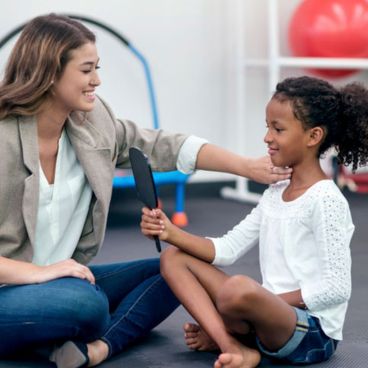
Speech & Language Therapy
Speech and Language Therapy helps students who have difficulties with speech production, fluency, language comprehension or expression, social communication, voice, oral-motor skills, and swallowing. Therapists use customized interventions to improve students' speech clarity, understanding and use of language, conversational ability, reading/writing skills, and safe swallowing. Goals include enabling students to effectively communicate their academic, social, and physical needs, fully access curriculum, build literacy, participate in classroom discussions, expand social relationships, and safely eat meals. Speech therapy promotes communication, learning, literacy, social interaction, and nutritional health through tailored therapy strategies, assistive techniques, and family education. The goal is to improve the ability of individuals to effectively communicate with others. This may involve teaching individuals how to use alternative communication methods, such as augmentative communication devices.
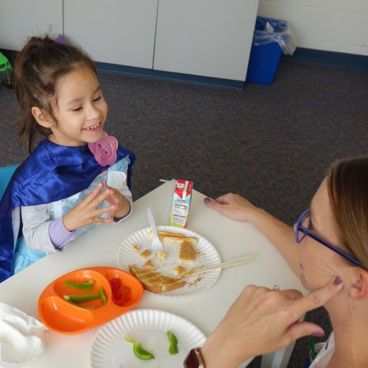
Feeding Therapy
Feeding Therapy helps students who have difficulty eating, swallowing, or feeding themselves adequately due to developmental delays, sensory processing issues, oral-motor deficits, tube-feeding dependence, and other conditions. Therapists use techniques like sensory stimulation, positioning, behavioral modification, and oral exercises to improve motor control, tolerance of different food textures, and intake of adequate nutrition orally. Goals include helping students consume enough calories and nutrition for growth, expanding food varieties tolerated, decreasing mealtime behavior issues, and promoting safe, efficient feeding to reduce risks like choking and aspiration. Feeding therapy aims to establish healthy, developmentally appropriate feeding skills and habits to support students' well-being and participation in school and home mealtimes.
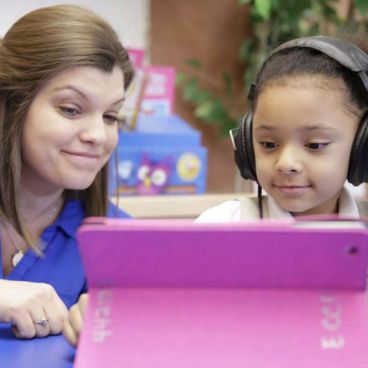
Assistive Technology Training
Assistive Technology Training focuses on teaching individuals how to use technology to overcome disabilities and increase their independence. Assistive technology therapy evaluates students' capabilities and impairments to determine devices and services that can enhance their functional skills and independence in the classroom and at home. Therapists recommend and train students on the use of assistive tech like communication supports, mobility devices, adaptive learning software, computer access technologies, seating systems, and sensory tools based on each student's individual needs. Goals include improving students' ability to access curriculum and instruction, participate in educational activities, complete school work efficiently, interact socially, expand play and leisure interests, and build life skills. Assistive technology therapy aims to give students the tools to overcome disability-related barriers to achievement, productivity, communication, and full participation.
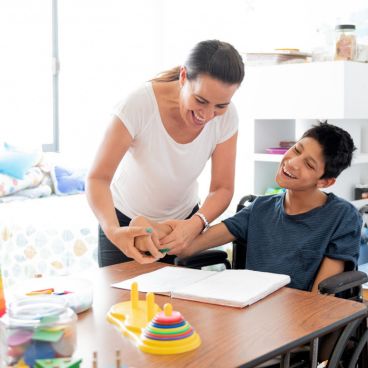
Occupational Therapy
Occupational Therapy is warranted for students who have physical, cognitive, social-emotional, or developmental difficulties that interfere with their ability to fully participate in educational activities. They use customized therapeutic techniques and interventions that target underlying deficits in sensory processing, motor skills, organization, social functioning, and regulation of emotions and behavior. Goals include helping students effectively engage in learning, play, self-care, and relationships at school. Occupational therapy promotes skill development, accessibility, adaptation, and accommodations tailored to each student's unique needs.
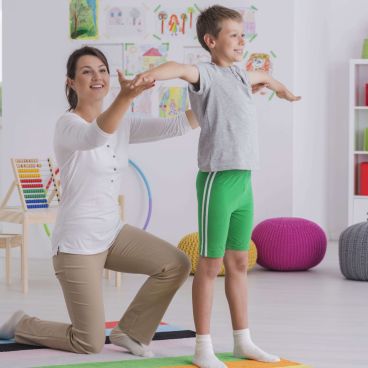
Physical Therapy
Physical therapy addresses individuals who have injuries, developmental delays, disabilities, and medical conditions that limit mobility and motor function. They provide customized exercise programs and training to improve strength, coordination, balance, and range of motion. Goals include enabling students to fully participate in educational activities, transition between classes, access equipment, play with peers, and gain greater independence through improving functional motor skills and physical abilities. Physical therapy in schools aims to give students the mobility, conditioning, and skills needed to thrive academically, socially, and physically.
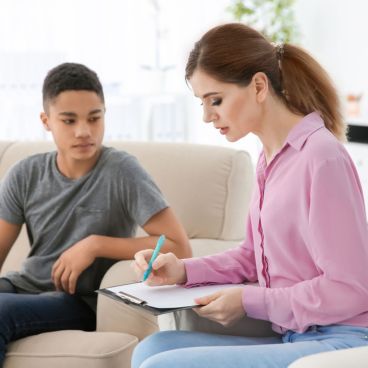
Counseling
Counseling is a form of therapy that involves providing mental health support to help students overcome social-emotional, behavioral, and psychological issues that are impacting their academic and personal success. Counselors use techniques like talk therapy, psychoeducation, group counseling, play therapy, and family therapy to address problems like anxiety, depression, trauma, self-esteem, anger issues, bullying, and more. Goals include teaching coping strategies, and communication skills, promoting resilience, and guiding students to make positive choices at school and home. Counseling aims to remove emotional barriers to learning, nurture healthy development, and enable students to build fulfilling relationships, make responsible decisions, and lead an overall successful life.
